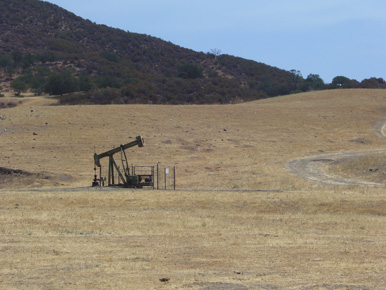
This newspaper’s brand has become a centerpiece of the multimillion-dollar, oil company-funded campaign to oppose the anti-fracking initiative, Measure J. We wish to disassociate ourselves from those efforts.
The ads prominently feature our logo and could lead viewers to conclude that the Hollister Free Lance has aligned with Big Oil to frack San Benito County. Nothing could be further from the truth.
The Hollister Free Lance’s name and identity were used without our permission. We have asked representatives of the campaign to remove it from the mailers and television spots, or to add disclaimers to precisely attribute the quote. Those requests were refused.
The out-of-context claim that Measure J supporters were “deceptive” does not reflect the opinion of the management or ownership of the Free Lance. It was a position taken by a nine-member volunteer editorial advisory board that had been established under the Free Lance’s previous ownership. Its role was redefined shortly after the ownership change in April. The editorial appeared prior to the redefinition, and its perspective does not reflect our current thinking.
Three large oil companies have outspent environmentalists 14-1, according to recent campaign filings. In the anti-Measure J ads, Chevron, ExxonMobil and Occidental Petroleum claim to care about property rights, local jobs and school funding, but since they don’t live here, we think that’s just campaign messaging, without substance behind it.
There are many reasons to be concerned about high-intensity petroleum extraction in San Benito County. Tourism, artisanal farming and wine production are economic contributors with a bright future that could be jeopardized by the injudicious expansion of oil fields here. And the diversion of precious water from agricultural use to oil extraction seems like a questionable strategy against the backdrop of the current drought.
From the BP oil spill to the Richmond fire, the oil industry’s environmental practices have harmed host communities in the past. There’s no assurance that the acids, gels, foams, steam, compressed gases and other chemicals pumped into the earth won’t generate seismic activity or contaminate water supplies.
Opponents of Measure J say it “will ban virtually all energy production in San Benito County.” That’s not true. Conventional oil pumping in nonresidential areas is permitted, as is green energy production, such as wind and solar. They also say that exploiting the county’s oil potential is necessary to reduce America’s dependence on foreign oil. While energy independence is important, that objective’s realization will depend much more on national policies, fuel efficiency standards, geopolitical realities, global demand, electric vehicle technology and factors other than how San Benito County voters weigh in on Measure J next month.
Throughout Central California, local communities are debating how to manage the push to accelerate oil production. Some communities, like Santa Cruz, have banned hydraulic fracturing completely.
We are glad that this debate is occurring. No matter how divisive, it’s too important to ignore. We thank Measure J’s supporters for bringing this initiative to voters, and hope that even if Measure J doesn’t become law, that responsible elected officials will enact policies to protect the county’s visual landscape and fragile ecology.







